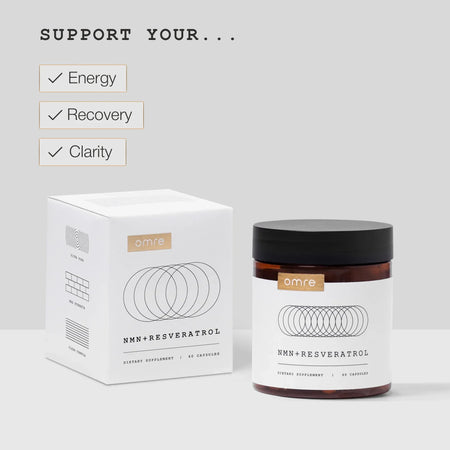NAD, short for Nicotinamide Adenine Dinucleotide, is a crucial coenzyme found in all living cells. It plays a significant role in various biological processes, including metabolism, energy production, and DNA repair. Understanding what NAD stands for and its functions can help illuminate its importance in health and disease.
What does NAD stand for?
NAD stands for Nicotinamide Adenine Dinucleotide. It is a coenzyme that exists in two forms: NAD+ (the oxidized form) and NADH (the reduced form). These forms are essential in redox reactions, which are processes that involve the transfer of electrons between molecules. NAD+ is known for its role in accepting electrons during metabolic reactions, while NADH is involved in donating electrons to other molecules, thus playing a pivotal role in cellular respiration and energy production.
The Importance of NAD in Cellular Metabolism
NAD is integral to the metabolic pathways that convert food into energy. It acts as a key player in the Krebs cycle, also known as the citric acid cycle, where it helps generate ATP (adenosine triphosphate), the primary energy currency of cells. By accepting and donating electrons, NAD ensures that energy is efficiently produced and utilized within the body. Low levels of NAD can lead to decreased energy production, which can affect overall health and vitality.
NAD and Aging
Research has shown that NAD levels decline with age, contributing to various age-related diseases. This decline has sparked interest in the potential of NAD-boosting supplements, such as nicotinamide riboside (NR) and nicotinamide mononucleotide (NMN), which may help restore NAD levels and promote healthy aging. By maintaining NAD levels, it is believed that cellular functions can be preserved, potentially leading to increased longevity and improved quality of life.
NAD's Role in DNA Repair
Beyond its involvement in metabolism, NAD also plays a critical role in DNA repair mechanisms. It serves as a substrate for enzymes known as sirtuins, which are involved in deacetylating proteins and regulating cellular stress responses. Sirtuins are crucial for maintaining genomic stability and preventing cellular damage, which is particularly important in cancer prevention and the aging process.
NAD and Health Conditions
Understanding NAD's function is vital in the context of various health conditions. Low NAD levels have been linked to metabolic disorders, neurodegenerative diseases, and cardiovascular issues. Supplementing with NAD precursors may offer therapeutic benefits for these conditions, although further research is needed to fully understand the implications and efficacy of such treatments.
How to Boost NAD Levels Naturally
There are several lifestyle changes and dietary choices that can help boost NAD levels naturally. These include:
- Regular Exercise: Physical activity has been shown to enhance NAD+ levels in the body.
- Caloric Restriction: Reducing caloric intake without malnutrition can increase NAD levels and promote longevity.
- Balanced Diet: Foods rich in niacin (vitamin B3), such as turkey, chicken, fish, mushrooms, and green peas, can support NAD production.
- Adequate Sleep: Quality sleep is essential for maintaining optimal cellular functions and NAD levels.
NAD-Boosting Supplements
As interest in NAD has grown, several supplements have emerged on the market, claiming to boost NAD levels. The most popular include:
- Nicotinamide Riboside (NR): A form of vitamin B3 that has been shown to increase NAD+ levels in the body.
- Nicotinamide Mononucleotide (NMN): A nucleotide that is also a precursor to NAD and may help improve metabolic health.
- Niacin: Another form of vitamin B3, niacin can help raise NAD levels but may cause flushing in some individuals.
Before starting any supplementation, it is essential to consult with a healthcare provider to determine the best approach based on individual health needs.
Conclusion
In summary, NAD, standing for Nicotinamide Adenine Dinucleotide, is a vital coenzyme that plays critical roles in cellular metabolism, energy production, DNA repair, and overall health. As research continues to explore the potential benefits of maintaining optimal NAD levels, understanding what NAD stands for and its functions can empower individuals to make informed decisions about their health and wellness. Whether through lifestyle changes or dietary supplements, supporting NAD levels may contribute to better health outcomes and longevity.
Stay Sharp, Stay Energized, Stay Ahead
Aging doesn’t have to slow you down. NMN + Resveratrol is your key to sustained energy, sharper focus, and long-term vitality. Whether you're a high performer pushing boundaries, a biohacker optimizing every aspect of life, or a parent looking to keep up with the demands of daily life, this powerful combination fuels your body at the cellular level.
Backed by science and trusted by those who refuse to settle for average aging, NMN + Resveratrol helps you stay ahead—today, tomorrow, and for years to come.
Experience the benefits for yourself. Start your journey to better aging now!
Try NMN + Resveratrol Today!
NMN + RESVERATROL
Cellular NAD+ booster with ultra‑pure NMN and Resveratrol, at research‑backed doses.*
Read more:


